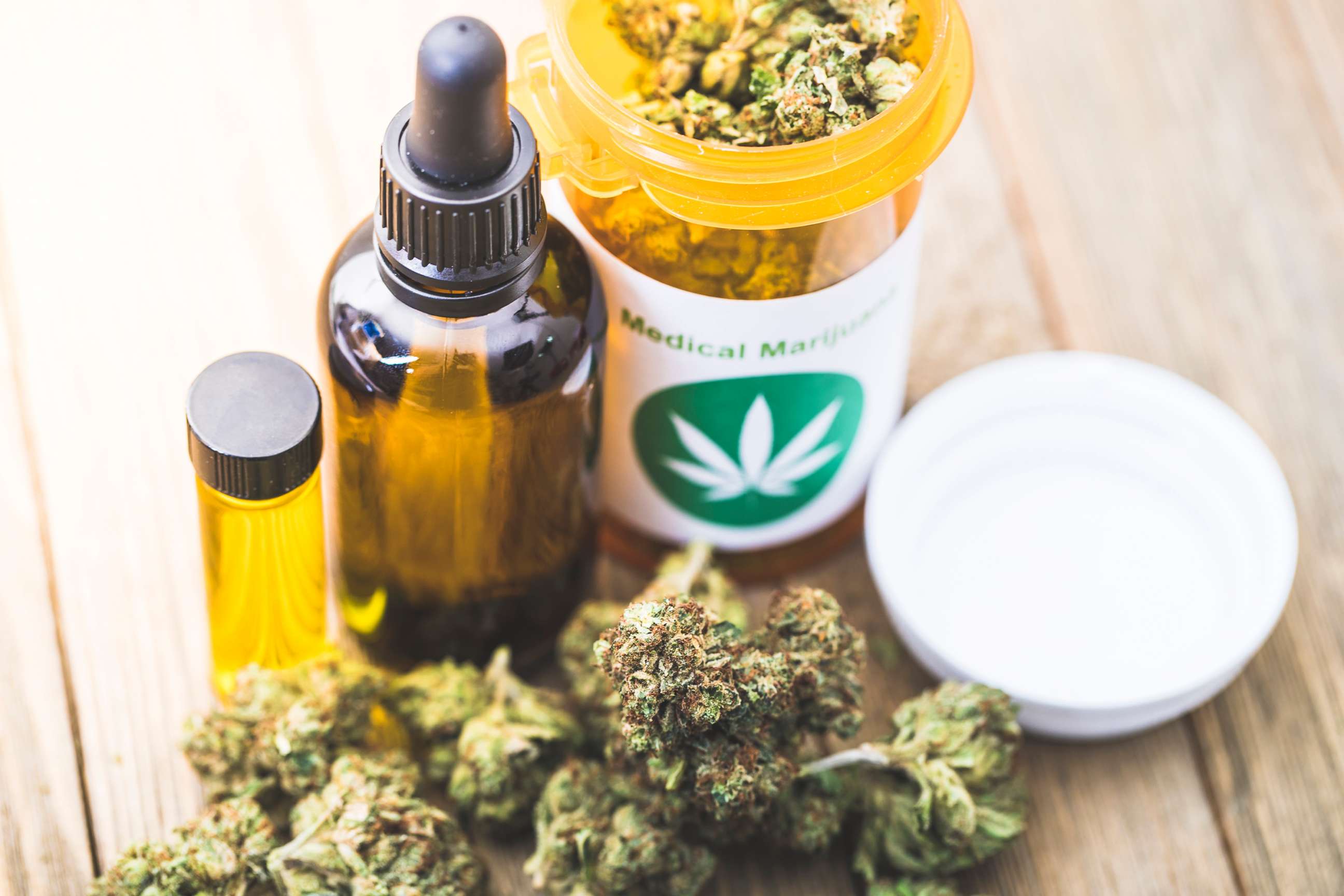Cannabis risks outweigh benefits when treating mental health disorders: Study
The meta-analysis examined data from 83 studies over the course of 40 years.
The risks of using medicinal cannabinoids like CBD and marijuana to treat mental health problems may outweigh any benefits, according to new evidence.
A meta-analysis published this week in the journal Lancet Psychiatry, which examined data from 83 studies and more than 3,500 participants between 1980 and 2018, found "scarce evidence" to suggest that cannabinoids improved a variety of mental health disorders, including depressive disorders, anxiety disorders, attention-deficit hyperactivity disorder, Tourette syndrome, post-traumatic stress disorder and psychosis.
A team of Australian researchers from the National Drug and Alcohol Research Centre at University of New South Wales used the umbrella term "medicinal cannabinoids" to include plant-based and synthetic cannabis products. Those products included medical marijuana and pharmaceutical-grade extracts with and without THC, the active ingredient in marijuana.
The evidence that pharmaceutical THC led to a small improvement in anxiety symptoms was "very low quality," the researchers wrote.

Based on that synthesized data, there's not enough evidence to justify "practitioners using or recommending" cannabis products to treat psychiatric disorders, Dr. Deepak D'Souza, a psychiatry professor at Yale University School of Medicine, who wrote in a comment piece that accompanied the study, told ABC News.
In addition to scant evidence supporting the effectiveness of medicinal cannabinoids, the review cited a large body of research about adverse effects that non-medical cannabis use can have on people with mental health disorders.
Those effects include an increased frequency of depression, anxiety and psychiatric symptoms, as well as concern that young adults, who are at greatest risk for those conditions, develop dependence from using cannabis every day over an extended period of time.
"Using cannabis or cannabinoids in people with psychiatric disorders is not without potentially serious consequences," D'Souza said.
"There is incontrovertible evidence that cannabis exacerbates psychosis in people with schizophrenia," he added.
D'Souza also pointed to the barriers to studying cannabis and cannabinoids, which are scheduled drugs, meaning the government classifies them as controlled substances. This classification makes it harder to do research on those substances, both because scientists must obtain the substances to study and because institutional boards may be less willing to approve studies of controlled substances, D'Souza explained.
In the meantime, D'Souza urged the public to be patient as researchers continue to evaluate medicinal cannabinoids.
"Demand has usurped the science," he warned. "Let's do the studies that need to be done, and then base our decisions on the evidence that the studies yield."




